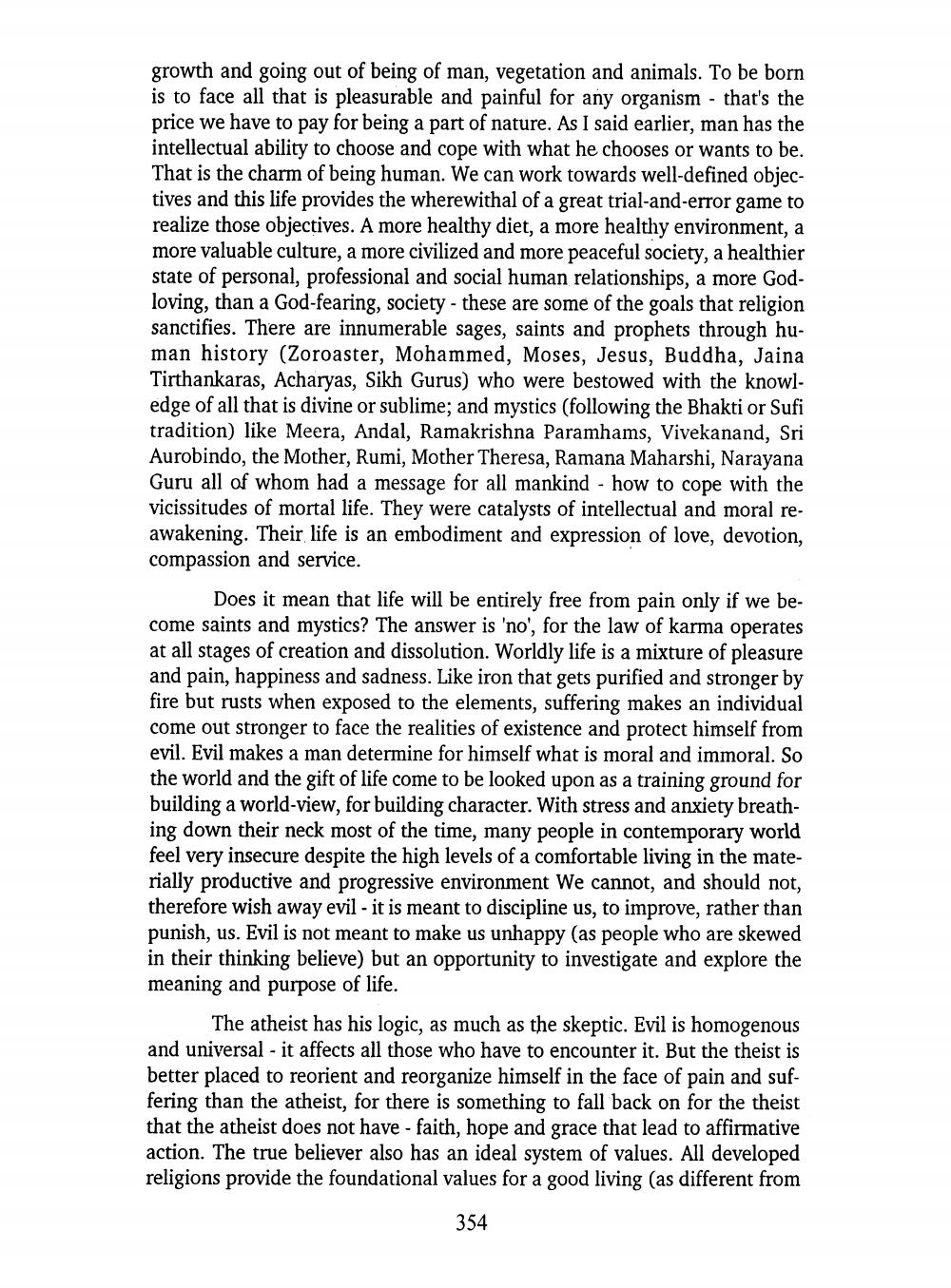________________
growth and going out of being of man, vegetation and animals. To be born is to face all that is pleasurable and painful for any organism that's the price we have to pay for being a part of nature. As I said earlier, man has the intellectual ability to choose and cope with what he chooses or wants to be. That is the charm of being human. We can work towards well-defined objec tives and this life provides the wherewithal of a great trial-and-error game to realize those objectives. A more healthy diet, a more healthy environment, a more valuable culture, a more civilized and more peaceful society, a healthier state of personal, professional and social human relationships, a more Godloving, than a God-fearing, society - these are some of the goals that religion sanctifies. There are innumerable sages, saints and prophets through human history (Zoroaster, Mohammed, Moses, Jesus, Buddha, Jaina Tirthankaras, Acharyas, Sikh Gurus) who were bestowed with the knowledge of all that is divine or sublime; and mystics (following the Bhakti or Sufi tradition) like Meera, Andal, Ramakrishna Paramhams, Vivekanand, Sri Aurobindo, the Mother, Rumi, Mother Theresa, Ramana Maharshi, Narayana Guru all of whom had a message for all mankind how to cope with the vicissitudes of mortal life. They were catalysts of intellectual and moral reawakening. Their life is an embodiment and expression of love, devotion, compassion and service.
Does it mean that life will be entirely free from pain only if we become saints and mystics? The answer is 'no', for the law of karma operates at all stages of creation and dissolution. Worldly life is a mixture of pleasure and pain, happiness and sadness. Like iron that gets purified and stronger by fire but rusts when exposed to the elements, suffering makes an individual come out stronger to face the realities of existence and protect himself from evil. Evil makes a man determine for himself what is moral and immoral. So the world and the gift of life come to be looked upon as a training ground for building a world-view, for building character. With stress and anxiety breathing down their neck most of the time, many people in contemporary world feel very insecure despite the high levels of a comfortable living in the materially productive and progressive environment We cannot, and should not, therefore wish away evil - it is meant to discipline us, to improve, rather than punish, us. Evil is not meant to make us unhappy (as people who are skewed in their thinking believe) but an opportunity to investigate and explore the meaning and purpose of life.
The atheist has his logic, as much as the skeptic. Evil is homogenous and universal - it affects all those who have to encounter it. But the theist is better placed to reorient and reorganize himself in the face of pain and suffering than the atheist, for there is something to fall back on for the theist that the atheist does not have - faith, hope and grace that lead to affirmative action. The true believer also has an ideal system of values. All developed religions provide the foundational values for a good living (as different from
354




